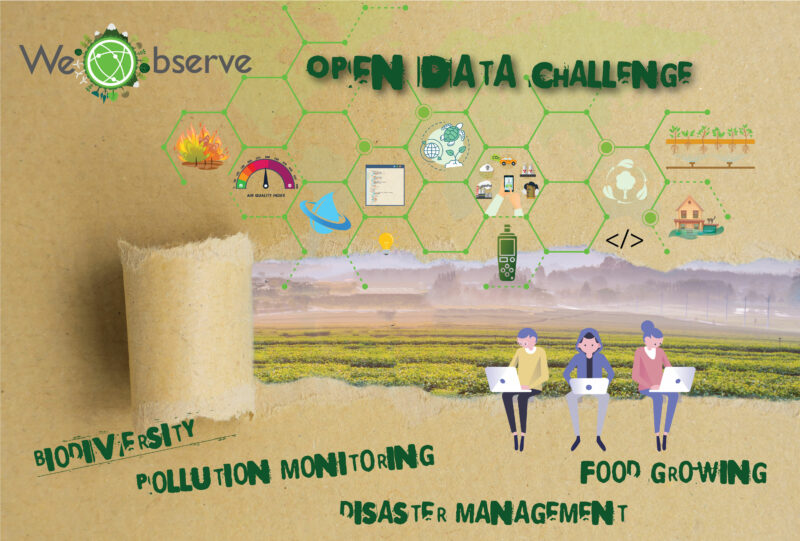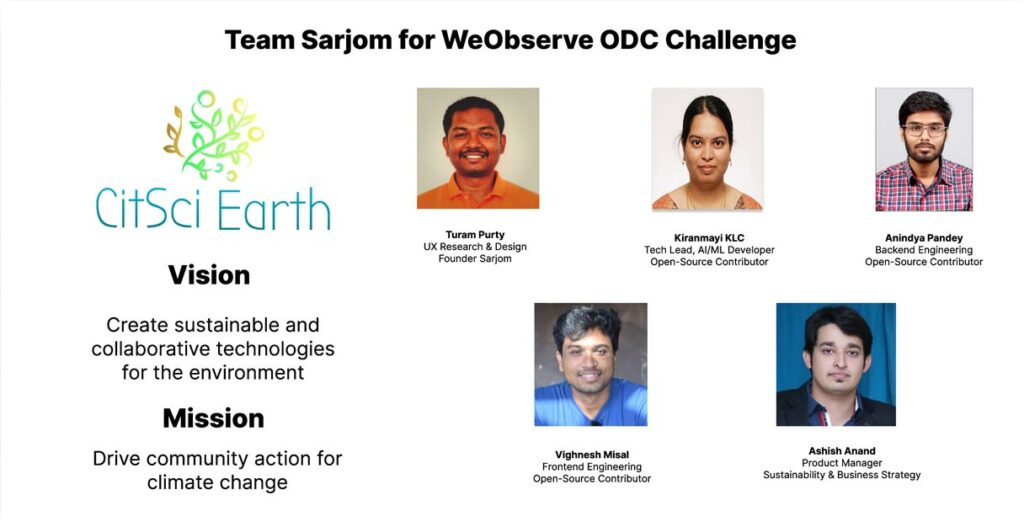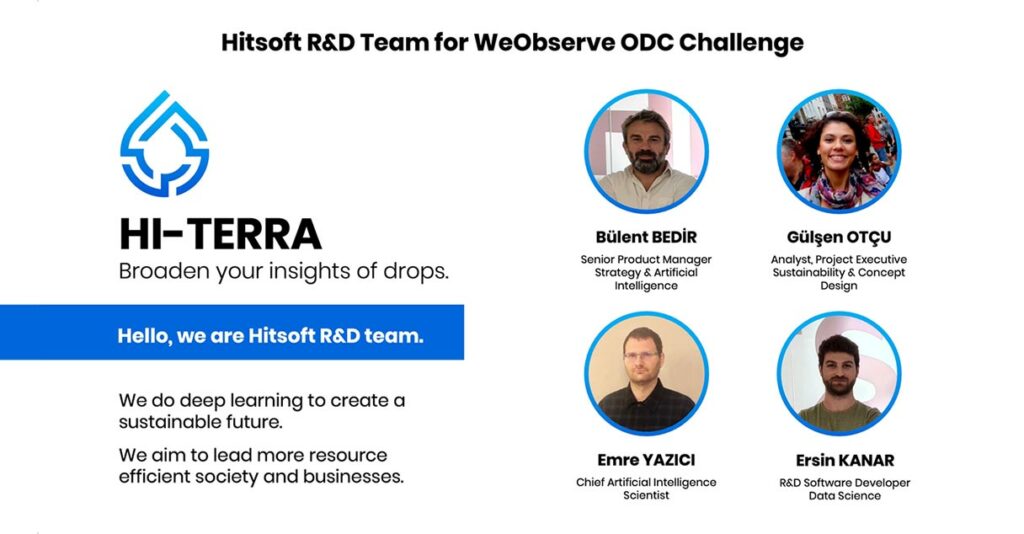 Addressing climate challenges requires help from everyone, and Citizen Observatories aspire to deeply engage citizens to gather data and information about the environment to support better decision-making, new services and make change.
Addressing climate challenges requires help from everyone, and Citizen Observatories aspire to deeply engage citizens to gather data and information about the environment to support better decision-making, new services and make change.
WeObserve is opening data from four Citizen Observatories to create new digital transformation opportunities by using open data for products and services that can be implemented for wider social good. There were some key events that made up our Open Data Challenge: i) Team registration, ii) Consent for access to online datasets, iii) Challenge themes & opportunities, iv) Guidance from a mentor, v) Submission & demonstration at a final event.
ABOUT THE CHALLENGE
With the acceleration of climate change, addressing environmental challenges has never been more urgent. More people now than ever before have direct experience of the increased pressure on our planet. They are calling for better protection for local issues that have an impact in their lives, from extreme events such as flooding and wild-fires to pollution. At the same time, people have to global concerns related to the wise use and regeneration of natural assets, biodiversity loss and risks such as food security.
Environmental data can help to address these issues. As a result of citizens coming together with scientists and other stakeholders there is a growing amount of high-quality and open data to apply to these challenges. There are opportunities to merge open datasets from local governments and data from these Citizen Science projects to produce new and exciting data products.
We see innovation potential in developing technologies, services and models e.g. in land management, biodiversity trackers, pollution monitoring, agriculture and disaster response. There are also opportunities to support people’s values by removing barriers, such as conflicting attitudes and responsibilities, lack of time, trust or space, or providing training and incentives to solve local issues through pro environmental action. It is clear that we all have a role to play and there is a great deal that needs to be done.
Thus, the objectives of the WeObserve Open Data Challenge are to:
- Find new approaches and solutions to environmental challenges through the use of one or more WeObserve Citizen Observatory open datasets, that can can be also combined with additional datasets from other sources.
- Produce innovative applications, services, including visualisations. The focus of the demonstrators can be local or global, urban or rural.
- Showcase a solution for using open data for social good through our themes for the benefit of the public, environmental or challenge relating to climate change.
CHALLENGE AREAS
The WeObserve ODC has 7 main challenge areas:
WINNING TEAMS
The participation in the challenge was high and WeObserve received a range of interesting proposals. All submissions were judged on excellence across three criteria: Solution and Data, Concept, and Team and Market. According to these criteria, the judging panel concluded on the two winners. Each of the winning teams has been awareded with a tender of €5,000 cash following the completion of the challenge!
CitSci Manager

HI-TERRA

